Citizen groups yesterday demanded that Taipei officials remain neutral, saying the city government was interfering in recall campaigns by refusing to allow campaigners to use public spaces.
Activists working on recall campaigns in Taipei’s Neihu (內湖) and Nangang (南港) districts said that since they began collecting signatures earlier this year, they have been harassed on the streets, and their applications to use schools and parks for events have been denied.
Meanwhile, Chinese Nationalist Party (KMT) Legislator Lee Yen-hsiu (李彥秀), who is facing a recall vote, has been able to convene rallies at a junior-high school, which was attended by many KMT officials, they said.
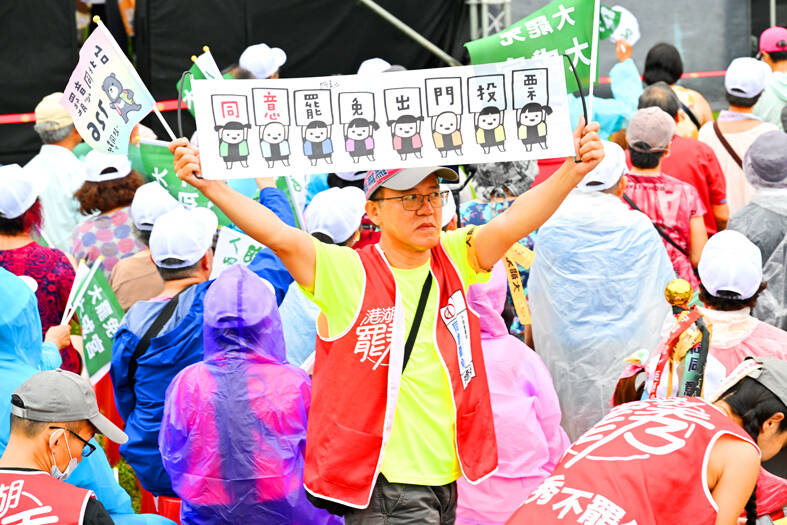
Photo: George Tsorng, Taipei
A spokesman also cited incidents raised by activists in other jurisdictions that allege that cities and counties controlled by the KMT have abused their authority by allowing KMT lawmakers to use street spaces, parks and schools, but denying these to citizen groups.
Activists have requested public prosecutors to launch investigations into the alleged contraventions and into reports that people have found pamphlets urging them to vote “no” in the recalls bundled with the official notice for the July 26 vote.
Under Article 50 of the Public officials Election and Recall Act (公職人員選舉罷免法), “during the periods designated for public official election campaign and recall activities, civil servants in agencies at any level of the central or local government shall not participate in election campaign or recall campaign promotion activities,” the spokesman said.
New Taipei City Councilor Chang Chia-ling (張嘉玲) of the Democratic Progressive Party (DPP) yesterday also accused the KMT of illegal use of public resources in its fight against the recall vote, saying that she and local residents have seen groups of traffic control officers and firefighters mobilized to attend rallies organized by KMT Legislator Hung Mong-kai (洪孟楷) and other KMT legislators to bolster crowd sizes.
“These are unfair ways to fight against citizen groups, which do not possess such government resources and employees, are an abuse of the public sector and their affiliated groups, and are against election and recall law statutes,” Chang said.
Citizen groups in other KMT-administered cities have requested that prosecutors launch investigations into allegations that neighborhood chiefs and borough wardens in Taoyuan bundled the official notice for the recall vote with pamphlets urging residents to vote “no” in support of KMT Legislator Lu Ming-che (魯明哲).
Groups in Hsinchu City said there were numerous instances when suspended mayor Ann Kao (高虹安) of the Taiwan People’s Party used city-organized public events and venues to call on people to cast “no” votes during the recall vote. Kao is appealing a corruption conviction and is facing a recall vote.
The Agency Against Corruption has already initiated an investigation.
In Yunlin County, citizen groups have accused county Commissioner Chang Li-shan (張麗善) of the KMT of urging people during county-organized events to vote against the recall.
They also accused her of pressing local county representatives to sign statements demanding higher state funding for the county, in effect forcing officials to take a political stance against the DPP government.
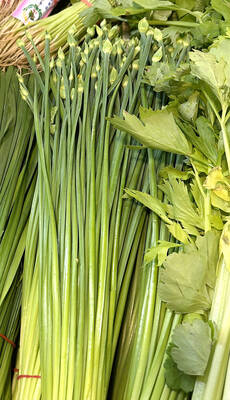
The Taipei Department of Health’s latest inspection of fresh fruit and vegetables sold in local markets revealed a 25 percent failure rate, with most contraventions involving excessive pesticide residues, while two durians were also found to contain heavy metal cadmium at levels exceeding safety limits. Health Food and Drug Division Director Lin Kuan-chen (林冠蓁) yesterday said the agency routinely conducts inspections of fresh produce sold at traditional markets, supermarkets, hypermarkets, retail outlets and restaurants, testing for pesticide residues and other harmful substances. In its most recent inspection, conducted in May, the department randomly collected 52 samples from various locations, with testing showing
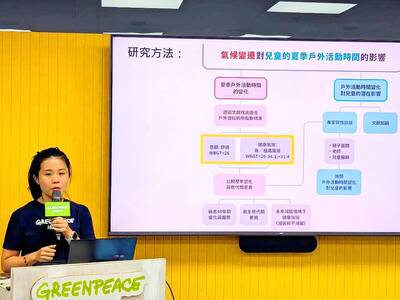
The government should improve children’s outdoor spaces and accelerate carbon reduction programs, as the risk of heat-related injury due to high summer temperatures rises each year, Greenpeace told a news conference yesterday. Greenpeace examined summer temperatures in Taipei, New Taipei City, Taoyuan, Hsinchu City, Taichung, Tainan and Kaohsiung to determine the effects of high temperatures and climate change on children’s outdoor activities, citing data garnered by China Medical University, which defines a wet-bulb globe temperature (WBGT) of 29°C or higher as posing the risk of heat-related injury. According to the Central Weather Administration, WBGT, commonly referred to as the heat index, estimates
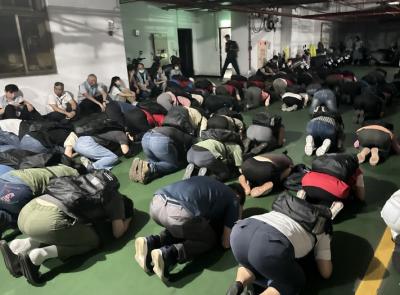
Taipei and other northern cities are to host air-raid drills from 1:30pm to 2pm tomorrow as part of urban resilience drills held alongside the Han Kuang exercises, Taiwan’s largest annual military exercises. Taipei, New Taipei City, Keelung, Taoyuan, Yilan County, Hsinchu City and Hsinchu County are to hold the annual Wanan air defense exercise tomorrow, following similar drills held in central and southern Taiwan yesterday and today respectively. The Taipei Mass Rapid Transit (MRT) and Maokong Gondola are to run as usual, although stations and passenger parking lots would have an “entry only, no exit” policy once air raid sirens sound, Taipei
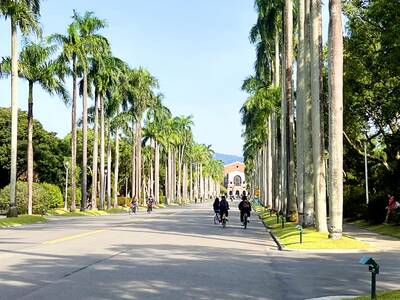
Taipei placed 14th in the Quacquarelli Symonds (QS) Best Student Cities 2026 list, its highest ever, according to results released yesterday. With an overall score of 89.1, the city climbed 12 places from the previous year, surpassing its previous best ranking of 17th in 2019. Taipei is “one of Asia’s leading higher-education hubs,” with strong employer activity scores and students “enjoying their experience of the city and often keen to stay after graduation,” a QS staff writer said. In addition to Taipei, Hsinchu (71st), Tainan (92nd), Taichung (113th) and Taoyuan (130th) also made QS’ list of the top 150 student cities. Hsinchu showed the